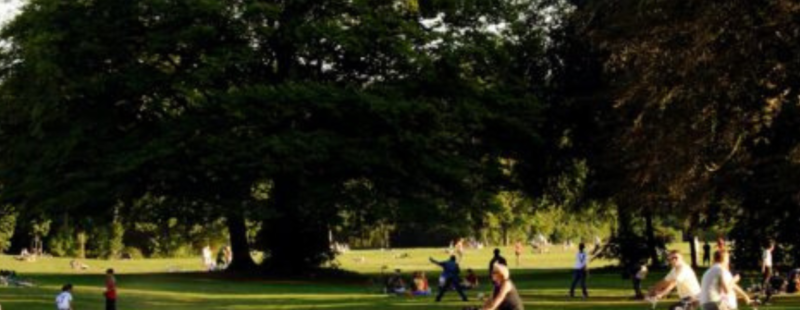The Office for National Statistics (ONS) has released a new report that analyses the levels of ‘social capital’ in the United Kingdom. This is a slightly jargon-y word that explains the different types of social connections in our lives, and all the benefits they bring. The new report from the ONS looks at four aspects of social capital: personal relationships, social network support, civic engagement and trust.
What did this research find?
The first set of measures focus on the characteristics of people’s relationships – including the size of social networks, satisfaction with relationships and trust within neighbourhoods. The data comes from a mix of surveys and was collected in 2011/12. Headline findings include:
- 1 in 10 people (aged 18+) in the UK said that they experienced loneliness “all, most or more than half of the time” over the previous two weeks to being surveyed
- 36% of UK residents wished that they could spend more time with family – and the same proportion also said they wished that they “had more social contacts”
- Nearly three quarters (71%) of those surveyed thought that people in their neighbourhood were “willing to help each other”
The report shows there is a correlation between numbers of close friendships and satisfaction with life. Of the people who had no close friends, 26% said that they were dissatisfied with their life. This was compared to just 14% of people who had 10 or more close friends and were dissatisfied with life.
The research also found that loneliness has a negative impact on our life experiences and attitudes. Of those who report feeling lonely all the time:
- 48% felt “left out of society”
- 41% said that what they do is “not recognised by others”
- 32% feel that what they do in their life is “not worthwhile”
These findings are made more significant when compared to people who never reported feeling lonely: only 7% of this group feel left out of society, 17% feel what they do is not recognised and just 5% feel that their life in not worthwhile.
Finally, the report looks at whether people in the UK have someone to rely on if they had a “serious problem”. Overall, 87% of people said that they could rely on a partner, family member or friend. However, the majority of people were most likely to “rely a lot” on a partner (83%) compared to 62% relying a lot on family, and just less than half of people (45%) relying a lot on friends.
What does this mean in the real world?
This Office for National Statistics (ONS) report reminds us that consistently 10% of the population – across all age groups – are experiencing loneliness regularly. This is similar to past estimates, in our Safeguarding the Convoy report from 2011 we reported that 5-16% of people aged 65+ said they felt lonely all of most of the time. Although chronic loneliness is a minority experience, the fact that levels appear to remain consistent could indicate that – as our population increases – we are facing a rise in loneliness in our population.
The research makes it clear that loneliness has a significant influence on quality of life, and how we view ourselves and our role in society. It clearly indicates that improving the quantity – and quality – of relationships can help with mental wellbeing and satisfaction with life. But those working to prevent or alleviate loneliness could also seek to changes individual’s attitudes by creating services and support that value everyone’s contribution and generate purpose. If you’re interested in learning more about how to design activities or services that tackle loneliness, take a look at our recent report Promising Approaches to reducing loneliness and isolation.
Finally, those in contact with people who have been bereaved – from registrars to local community groups – should recognise that losing a partner could also indicate the loss of other support and help in a crisis, or on a daily basis, even if they have family and friends around.




No comments on this article yet. Please feel free to submit a comment below.
By submitting a comment you grant Campaign to End Loneliness a perpetual license to reproduce your words and name/web site in attribution. Inappropriate and irrelevant comments will be removed at an admin's discretion. Your email is used for verification purposes only, it will never be shared.